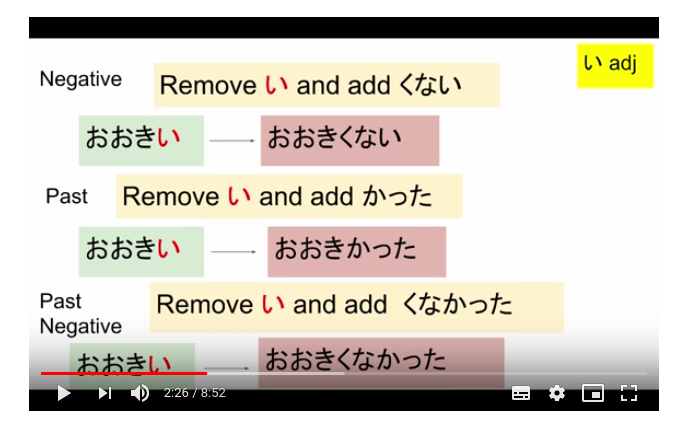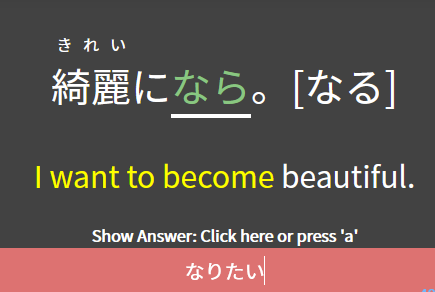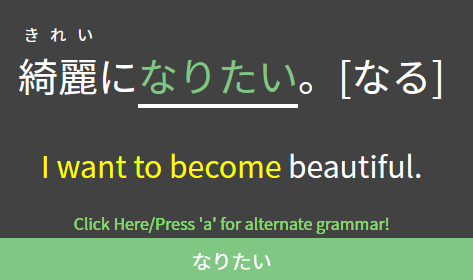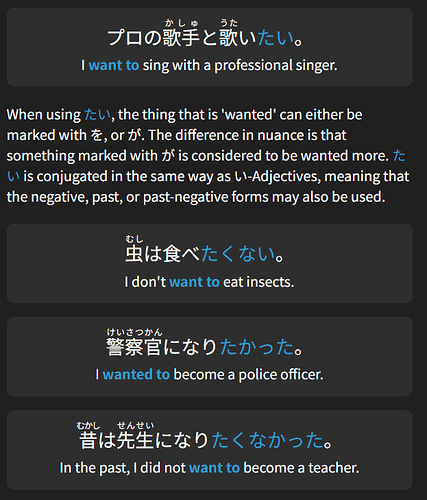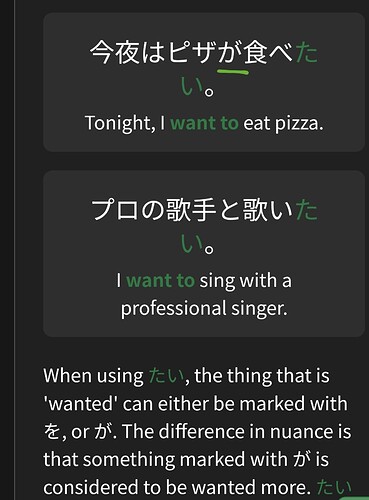Don’t worry about asking questions that’s what these grammar point forums are for (◠ᴥ◕ʋ)
First, it doesn’t say that it should be used with を or が but rather able to use either. When marking an object of desire. So if the sentence doesn’t have that, then there’s nothing to mark. “I wanted to become a police officer” to become なる is always used with に, so no を or が in the なりたい sentences. For the 虫は食べたくない , the は is used for negative contrast instead. The sentence would still work with either を or が.
プロの歌手と歌いたい, again no object of desire. “I want to sing with a pro singer.” If it was この歌(を/が)歌いたい you would use either marker, with が having more emphasis
Object of desire can either take particle を or が.

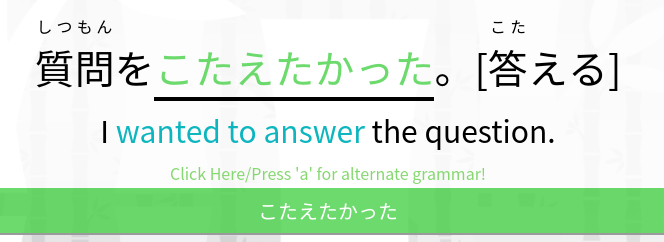

 ) conjugate like verbs so it might be misleading.
) conjugate like verbs so it might be misleading.